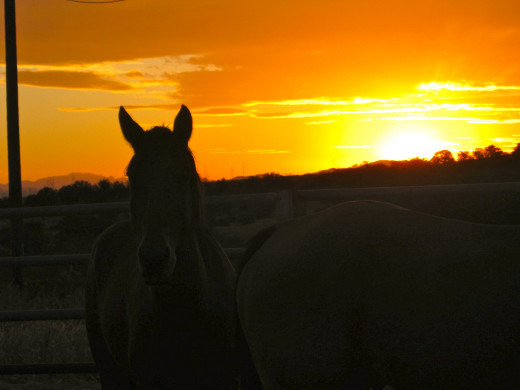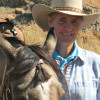The Beauty of Ritual
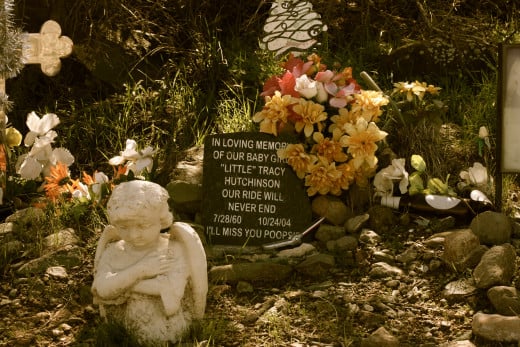
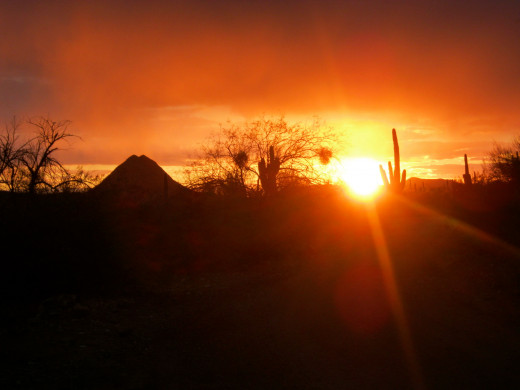
Ritual: An Important Part of Mindfulness
Most of us have a great deal of ritual in our lives -- often without even recognizing it. It's those actions we take, sometimes ceremoniously, to mark those elements of our life that are important to us personally, socially, or culturally. Organized or structured rituals are generally rich with symbolism.
By their very nature, ritualistic activities are an important part of mindfulness. They call our attention to the moment and, because they are often shared with others, they remind us of our commonality and connectedness. When performed alone, they are often moments of great focus and clarity.
In hopes of bringing even further mindfulness to your own ritualistic behavior, here are some common types of ritual we often indulge in.
Spiritual or Religious
When we think of ritual, often the first type that comes to mind are those rituals associated with a religion or a spiritual practice. Given just a few minutes, you're likely to be able to come up with several such examples. Communion. Mass. Last rites. Wiccan rites. Solstice celebrations. Religious circumcision. The lighting of the Sabbath candles. Purification. Fasting. Saying grace. Group prayer. Mandalas. The list is likely not just long but infinite, because new rituals are still being born even as I write. It is probably fair to say that most organized religions rely heavily on ritual to bring believers together to focus on key elements of their faith.
Religious ritual often supports the tenets of one's faith, the remembrances of religious events or conflicts, and the unity of believers. They serve to remind believers that they are not alone in those beliefs. They advertise, so to speak, important guidelines to help adherents stay on the accepted path. Often, they comfort and reassure.
Common-place secular traditions often evolved from religious foundations, such as the lighting of the star atop our Christmas trees (symbolic of the Star of Bethlehem). Even if we don't pay homage to our own religious principles in those traditions, we often pay homage to those of our ancestors.
Superstition
If you think you're free of ritualistic behavior, consider superstition. Taking a moment to toss salt over your shoulder because you spilled the shaker is a ritual. So is the simple "bless you," we offer to those around us who've sneezed.
I grew up enjoying my Mom's description of the "first footing," ritual that would take place in the family home right after midnight on January first every year. It is similar to our household tradition of saying, "rabbits" on the first day of each new month, thus giving ourselves luck for the month. I recall my mother slipping quietly into my room on those "firsts" and gently waking me, telling me, "Make sure you say 'rabbits!'" Although none of us would ever claim to truly believe that such rituals would truly bring us luck, we indulged them out of the joy of sharing that ritual, no matter how small, and the simple pleasure of a family tradition.
Self-Affirmation and Empowerment
Often, we adopt ritualistic behavior to help us through a challenging time physically or mentally (and the two are often linked so closely as to be inseparable). Proponents of self-affirmation may write a personal affirmation down 100 times, or look into the mirror, eye-to-own-eye, and say, "I am beautiful," or "I am loved." Even the evil stepmother of Cinderella enjoyed the ritual of staring into the mirror and asking, "Mirror, mirror, on the wall," to admire her beauty in a twisted form of self-affirmation. Self-affirmation may not always be healthy and kind!
Whole books were written on self-affirmation during the self-help boom that began in the 1970s. Readers were encouraged to free ourselves of debt by filling a notebook with sentences such as, "I will be free of debt and financially independent within six months." Ritualistic? Yes. Effective? As a child, I remember being encouraged to do such repetitive exercises; I can say that I met many of my goals, but whether it was the affirmation concept that worked or simply the fact that I actively pursued and worked hard toward those goals, I can't answer with any degree of certainty.
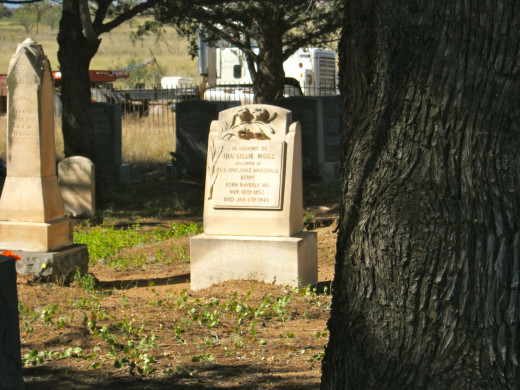
Mourning and Remembrance
As someone who is not a member of an organized religion, I find myself sitting in churches on those occasions that a friend is either "newly wed or newly dead." I marvel at the power of ritual on those occasions; the happiness a large group of people share when one person slips the ring onto the finger of someone they love, or the acceptance that shared grief brings as we watch flowers and a handful of soil tossed onto a casket. When I was young I rebelled against ritual of all such ilk: I saw them as forced, involuntary forays into the unpleasant world of duty and obligation. I didn't recognize the value of coming together en masse to celebrate and mourn to us as individuals. Now I realize they're not just about the other person. They aren't about the person being buried, or even showing support for the survivors (albeit important as it is!) -- these rituals are about the value of coming together as humans and sharing a deep emotion. They're also about acceptance and truly understanding the brevity of life, or being reminded of the joy of the now.
I appreciate rites of passage, now. It was a long time coming, my new understanding, but it has been worth the wait. For those of us who love our pets as family members, even as our children, I believe that the reason it's often harder to lose a beloved dog than to lose a relative is that society doesn't encourage such rituals in honor of their passing. I recall standing next to my Dad at the place beneath the shady tree where I buried so many dogs I'd loved and lost, holding his hand and crying. He'd ask me to bring the dog's favorite toy, and their blanket, and he'd gently wrap them, placing the toy with them, and then put them in the hole. We'd bring the other dogs over to show them where their friend had been put to rest, and we mused at how those dogs always responded with understanding and acceptance. Having Dad beside me as we did these small but meaningful rituals is still something I look back on with gratitude. Dad always understood.
Obsessive-Compulsive Disorder
As mentioned above, ritualistic behavior is not always healthy. An obsession with unhealthy and unproductive ritual is often a hallmark of OCD: Obsessive-Compulsive Disorder. For many of us, the closest we've come to seeing OCD behavior is in the marvelous performance by Jack Nicholson in "As Good as it Gets," where he constantly demonstrates his ritualistic fixation. His locking-and-unlocking the many bolts on his door a certain number of times, or refusal to step on the cracks in the sidewalks, are poignant examples of these unhealthy rituals.
Having known friends who struggled with OCD and watching their own rituals, I've witnessed firsthand similar behaviors. Because such rituals actually prevent a normal existence and disrupt productivity or even the ability to keep a job, they cease to be sources of comfort, but instead serve as a private hell.
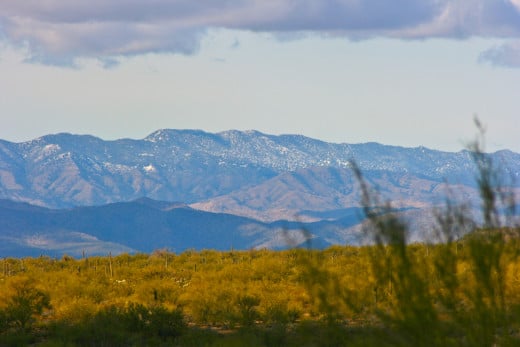
A Most Mindful Tea
A Soothing Daily Routine
- How to Build the Perfect Bath
Few moments are as relaxing as those spent in the perfect bath. The warmth, the scent of essential oils, the tranquility of water -- it is one of our most affordable escapes. Enjoy!
Daily Routine
A more positive form of ritual that many of us privately indulge in is often found in certain parts of our daily routine. Every morning my husband is kind enough to bring me a cup of hot tea as I awaken, just as he's about to leave for work. That begins my day with a cherished ritual: I sit up to enjoy the tea, and I look out at the mountains to the west as the sun begins to light them. I enjoy the changing colors of those mountains and sky as they begin a shared shade of deep midnight blue, and then slowly distinguish themselves by their varied hues: mountains of purple, then lavender, before going maroon; and sky of red, orange, and yellow before passing into daylight blue. I use this as my first exercise in mindfulness for the day; appreciation of the heat of the tea, followed by its gentle flavor as it cools, and then the serenity of watching the morning colors evolve.
There are others who find similar ritual in their coffee time, whether it's at Starbucks or at the office. I'd venture to guess that the majority of us have some sort of "morning ritual" to varying degree. Sometimes those rituals are saved for the weekend, because they can then be shared with others.
Even after we get past that first wonderful sensation of coffee's aroma, we often incorporate meaningful ritual into our day. When you get home from work, do you have a specific routine that you cling to -- casting off your wristwatch or necktie, or sliding your feet into something casual and comfortable, kicking your work shoes aside? Does your office key-card get tossed into a specific location, perhaps with your car keys, where you won't need to pay it any attention for twelve more hours? I'd hazard to guess that those funny little routines are a form of meaningful ritual, important to our stress-management efforts.
As I think back, I recall various times of my life where those rituals were symbolic of that particular life passage. When working on a horse ranch as a teenager, I loved to arrive to the barn first, long before dawn, so I could have the deep pleasure of turning on the barn lights and going from stall to stall and watching the horses awaken. I still remember them each blinking at me, shavings on their faces from sleeping lying on the stall bedding, and then a "phwwww" noise as they snuffled out the sawdust in their noses. Thirty years later, and I can still see those morning horse faces, and I still associate it with a special time of life as I transitioned into adulthood.
Mindful Moments
Now, in full appreciation of the connection between ritual and mindfulness, I continue to incorporate ritual into my daily existence. Saying good morning to my horses remains part of my daily routine; when I am mindful, I take a moment to greet each one, or I find serenity in the morning stall cleaning. In the evenings, I have other mindful rituals: lighting a scented candle before meditating, or my great nightly joy of soaking in a devilishly hot bathtub rich with essential oils and epsom salt. Even as I climb into bed I observe another ritual: that of meditating myself right to sleep by wishing well to those whom I love. Those are all the most peaceful moments of my day, as well as the solution to the insomnia I experienced for the vast majority of my life. They discipline my busy mind.
I now try to build those mindful moments into much of my daily routine. These are not shared experiences with other humans, but they serve to remind me of the connectedness of living creatures: the moments breathing together with the horses, or pausing to sit when I see the wild rabbits approaching as I'm feeding the horses. They are as unafraid as if I were a quail or dove among them, and for those brief times, I am not a human intruder, but an accepted member of the desert creature society. This is a means of being part of the greater living world, not limited by my own humanness. This, I think, is how it really should be.
Copyright (c) 2013 by MJ Miller.
All rights reserved. No part of this may be published without permission of the author. However, links to this article may be freely shared.
